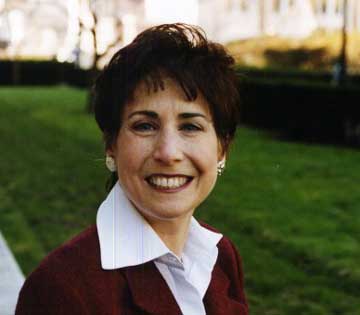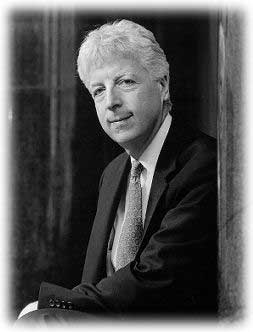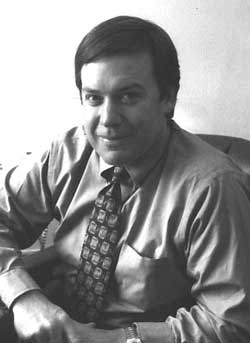|
Columbia University along with The London School of Economics and Political Science, Cambridge University Press, The British Library, The Smithsonian Institution's National Museum of Natural History and The New York Public Library have announced the creation of Fathom, a new company formed to launch a premier site for knowledge and education on the Internet.

|
|
Ann Kirschner, President and Chief Executive Officer of Fathom
|
Fathom, a for-profit spin-off, implements one aspect of Columbia's three-part digital media strategy, which also includes Columbia Center for New Media Teaching and Learning and Columbia Media Enterprises.
Fathom will address the most serious weakness of information on the Worldwide Web, the inability to authenticate the bulk of its content. All Fathom original content will be authenticated, meaning that the knowledge will be attributed to the appropriate educational or cultural institution and its faculty or professional staff. Fathom's standards of academic and editorial integrity will be monitored by the Fathom Academic Council, a panel of selected senior faculty and curators from participating institutions, which will be chaired by Columbia Provost Jonathan Cole.
Offering the best free content of universities, libraries, and museums, Fathom will enable a worldwide audience of students, working adults, and lifelong learners to explore subjects of professional or personal interest. Much of Fathom's content has never been available outside of the participating institutions.
Examples of Fathom content currently in development include:

|
|
Provost and Dean of Faculties Jonathan R. Cole will chair the Fathom Academic Council.
|
-
Selections from Columbia's Oral History Research Project, and interactive tour of Amiens Cathedral led by Columbia Professor Stephen Murray;
-
A talk on "The Weightless Economy," the shift from a world of manufacturing to a world of weightless services, by Professor Danny Quah, London School of Economics and Political Science;
-
An overview of the provocative new science of astrobiology, which brings together molecular life sciences, space exploration, planetary science and the search for extraterrestrials, by astronomer and editor Dr. Simon Mitton from the Cambridge University Press;
-
Multimedia presentations that bring to life treasured objects, from the Magna Carta to the Lindisfarne Gospels from the The British Library;
-
A survey of the endangered mammals of North America, with a real-time mapping tool for graphically relating each species to an almost limitless variety of map-based data, The Smithsonian Institution's National Museum of Natural History; and
-
A collection of over 54,000 photographic views of New York City that mark the development of the city, its architectural achievements, transportation system, and ethnic and cultural diversity from The New York Public Library.
A "Main Street" for knowledge and education, Fathom will include a comprehensive directory of related online courses offered by universities and cultural institutions, plus textbooks and other academic titles, specialized periodicals, individual articles and other publications, CD-ROMs, academic travel, and learning resources. Users will enroll in online courses through Fathom, with tuition fees, accreditation, and admission policies set at the discretion of the offering university or cultural institution.
Other internationally-renowned educational and cultural institutions will join the Fathom consortium prior to the launch of the site later this year.
According to Executive Vice Provost Michael Crow, Fathom implements one aspect of Columbia's three-part digital media strategy, which involves 1) the University arena, 2) the interface between the University and the market, and 3) the market arena.
-
For the University Arena the Columbia Center for New Media Teaching and Learning has been created as a service, support and development unit to provide assistance and advice to Columbia faculty about using digital media and instructional staff and to encourage the effective use of new information technologies in furthering the educational mission of the University.
-
For the University-Market Interface Columbia Media Enterprises (CME), formerly know as Morningside Ventures, has been established to identify and organize the intellectual resources of the University for dissemination and distribution through various digital media channels. The guiding intention of forming CME has been to create a unified and consistent presence for Columbia in new media. CME will develop "Columbia On-Line," a rich and intellectually rigorous compilation of University course materials and other scholarly work. How those resources are presented will be determined after extensive participation of the faculty.
-
In the Market Arena, Fathom is an example of a for-profit spin-off, in this case a consortium of elite education and cultural institutions to capture the high-end knowledge/education market by creating a top knowledge destination web site.
In discussing Columbia's digital media strategies in a February 29, 2000 letter to the faculty, President George Rupp wrote, "These new technologies offer opportunities for us to improve teaching and research at the University and also to extend our reach. But we will need to be sure that we realize the opportunities in ways that reaffirm our basic mission and our core values."
Columbia University, The London School of Economics and Political Science, Cambridge University Press, The British Library, The Smithsonian Institution's National Museum of Natural History and The New York Public Library will work with Fathom to develop high-quality digital media knowledge content for the Fathom site. Fathom will offer a wealth of free content, such as multimedia lectures, seminars, databases, publications, and performances. Working directly with the prominent faculty and curators of these institutions, Fathom will cover a wide range of subjects such as business and law, biology, computer science and technology, the arts, journalism, and physics.
Fathom users will have the opportunity to interact and collaborate with the leading experts in their field. Fathom's unique architecture will provide a powerful "search and explore capability" that will allow users to follow their interests, independently or with expert guidance, across the widest possible range of subjects.

|
|
Executive Vice Provost Michael Crow has spearheaded Columbia's digital media initiatives.
|
"Fathom embraces the principles upon which the great learning institutions of the world were founded -- to create a community where ideas flourish, to stimulate intellectual curiosity, and to aid in professional development," said Ann Kirschner, Ph.D., President and Chief Executive Officer of Fathom. "Fathom also reaffirms the founding principles of the Internet. By providing global access to these resources, Fathom holds the promise of knowledge without boundaries and a new medium for the exchange of ideas. It points ahead to a future where the acquisition and application of knowledge can be independent of economic status, time constraints, and geographic location."
"Fathom and its partners are committed to creating a dynamic home for knowledge. It will harness the power of the Internet to enhance the learning experience without diluting the highest professional and scholarly standards," she said. "Fathom is far more than another distance learning site. We are creating a vibrant 'Main Street' for knowledge and education. We intend to go beyond the current limits of information sites scattered across the web and also go beyond online initiatives from individual schools.
"Fathom will define the transformation of the on-line learning category into a broader interactive knowledge marketplace," Dr. Kirschner said.
Significant growth in online education is expected over the next few years. According to IDC, an industry analyst, the size of the U.S. market for distance learning is already $2 billion and is projected to be $6 billion in 2002 and $9 billion by 2003, a growing component of the $750 billion higher education market in the U.S. alone. Enrollment in online programs is expected to increase at an annual rate of 30-35%. Only top universities and cultural institutions will be able to provide the level of faculty and instructor interactivity and evaluation that will distinguish on-line education and therefore will lead the development of this new category. Developed by top universities, Fathom will be the leading online destination for high-quality knowledge and education.
The Columbia Center for New Media Teaching and Learning has already had a major impact on campus-based education. In its first months, the Center has worked with more than 300 faculty members on projects ranging from simply putting a course syllabus on the Columbia network to such complicated online digitial projects as designing distance learning applications, creating graphical approaches to teaching and learning, and incorporating elaborate computer simulations in courses. The Center also runs an ambitious schedule of workshops for faculty and instructional staff about the use of computer and other new media technology in education.
Meanwhile, Columbia Media Enterprises will provide support for faculty and staff developing digital tools and technologies that have commercial potential, and in that capacity, CME will play a role for digital media analogous to Columbia Innovation Enterprise's highly successful licensing and patenting efforts in other areas. As with the case of other patents and licenses, most of the revenue, if any, that accrue from these activities will be returned to the faculty and other developers, and all of whatever revenues the University receives will be invested to support education and research.
|
